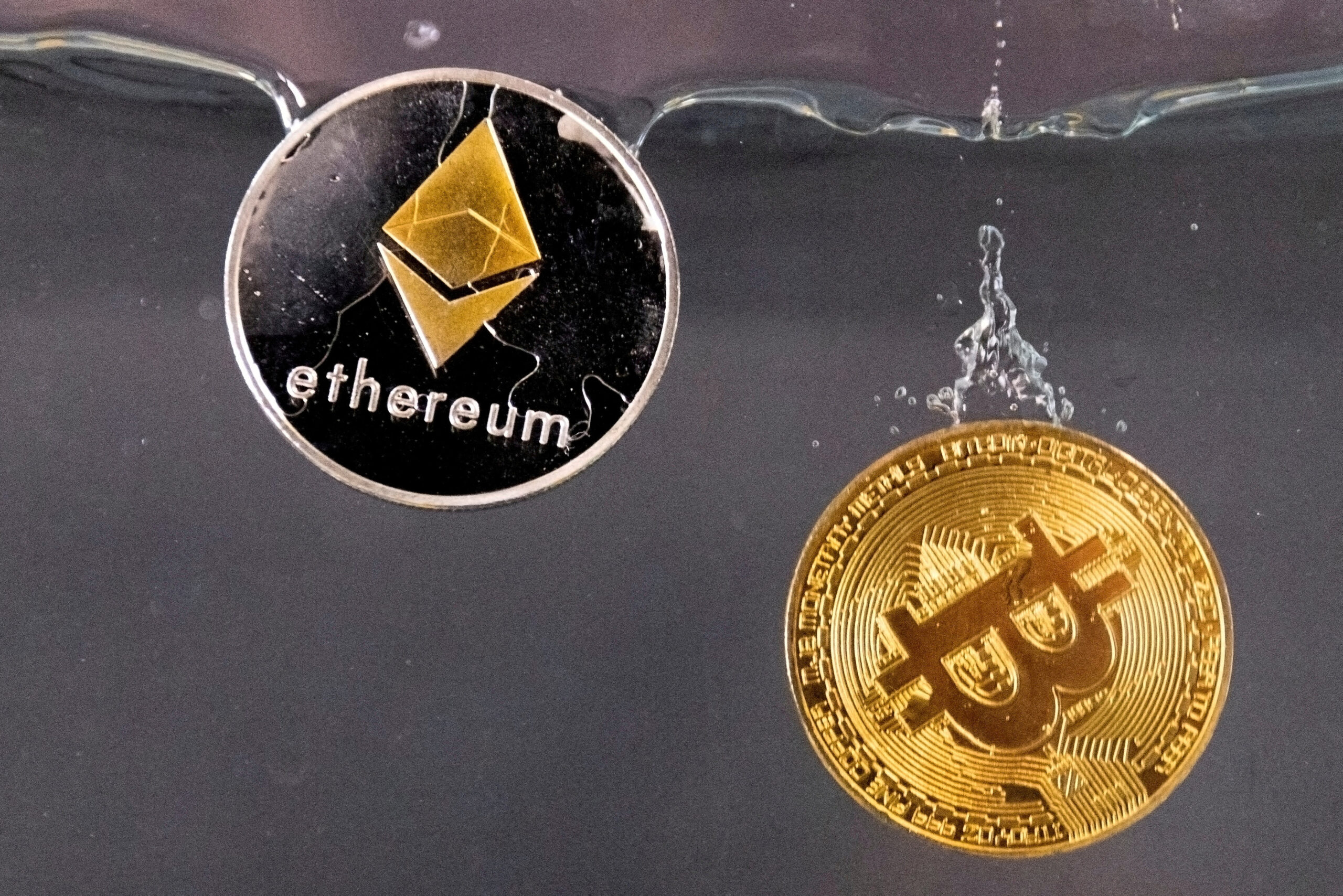Philippines ranks 2nd in cryptocurrency ownership globally — study

Souvenir tokens representing cryptocurrency Bitcoin and the Ethereum network, with its native token ether, plunge into water in this illustration taken May 17, 2022. REUTERS/Dado Ruvic/File Photo
Filipinos are leading in terms of cryptocurrency ownership in the world and they are keen on pouring in more money in these digital assets that have become alternative forms of investments, according to a study commissioned by blockchain company Consensys.
In its annual global opinion survey conducted by data analytics group YouGov, it was revealed that 52 percent of the Philippines bought cryptocurrencies like Bitcoin and Ethereum.
This put the Philippines in the second rank in terms of crypto adoption next to South Africa, whose 65 percent of the respondents have digital asset ownership.
READ: Bitcoin rise getting more Filipinos into crypto
The latest figure for the Philippines showed an increase in crypto ownership from 45 percent in 2023.
Moving forward, 59 percent of the surveyed Filipinos will “definitely” or “probably” invest more in these highly volatile assets.
The study, which surveyed over 18,000 individuals across 18 countries, noted that Filipinos having a high level of awareness on cryptocurrency translated to a desire to purchase more.
The adoption of cryptocurrency in the Philippines, to recall, accelerated during the pandemic because of play-to-earn games like Axie Infinity. At one point, Filipinos made up about 40 percent of the game’s player base.
The survey found out that cryptocurrency was most associated with the “future of money” and “alternative to the traditional financial ecosystem.”
However, the investors remain wary over scams that could lead to financial losses.
Cybersecurity firm Kaspersky previously warned against cryptocurrency phishing attacks, which are being launched via links embedded on emails and even mobile messages. These suspicious links are designed to trick individuals into giving out their personal information, such as bank account details and addresses.
Kaspersky noted that usual cyber attacks were disguised as giveaway scams and fake wallet phishing pages.
It also previously detected an attack whereby users receive via email a PDF (portable document format) file “stating that they allegedly registered on a cryptocurrency cloud mining platform a long time ago and need to urgently withdraw a lot of crypts since their account is inactive.”
Cybersecurity experts have always warned the public to ignore these phishing emails to protect themselves.
